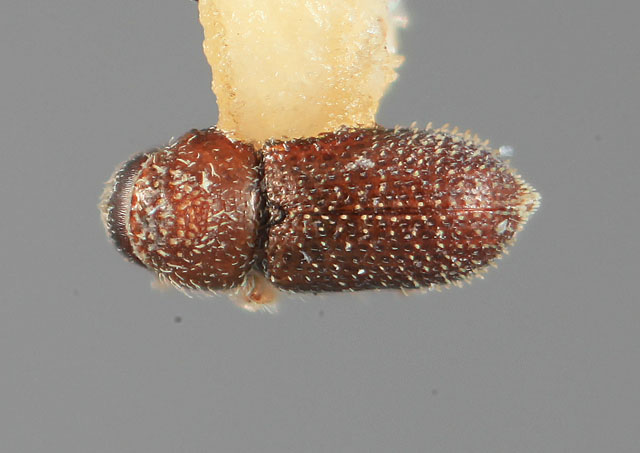Pseudothysanoes quercinus (Wood 1969)


 Images: Displaying 1 to 5 of 5
Images: Displaying 1 to 5 of 5 




 Pseudothysanoes quercinus (male)
Pseudothysanoes quercinus (male) |
 Pseudothysanoes quercinus (male)
Pseudothysanoes quercinus (male) |
 Pseudothysanoes quercinus (male)
Pseudothysanoes quercinus (male) |
 Pseudothysanoes quercinus (male)
Pseudothysanoes quercinus (male) |
 Pseudothysanoes quercinus (male)
Pseudothysanoes quercinus (male) |
|

Pseudothysanoes quercinus (male) (by SM Smith, Michigan State University). holotype Cryptocleptus quercinus Wood. This image is the property of the National Museum of Natural History, Smithsonian Institution, Washington, D.C., used under CC0 license
 Summary of Information
Summary of Information





SYNONYMY
- Pseudothysanoes quercinus (Wood 1969) Brigham Young Univ. Sci. Bull. Biol. Ser. 10(2): 30
- Cryptulocleptus quercinus Wood 1969. Brigham Young Univ. Sci. Bull. Biol. Ser. 10(2): 30
DISTRIBUTION.
Numbers in parentheses after each geographic unit are the number of distinct collection events in the database for that unit. For exotic species generally only countries are listed for localities outside the New World. For further information on published sources of distribution, check the REFERENCES section.
There are no distribution records in the database
HOSTS
Numbers in parentheses after each host family, genus, or collection method are the number of distinct collection events in the database for that host or method.
REFERENCES
The following are important recent monographs, catalogs, and supplements to catalogs that refer to this species. The specific page on which the reference is made is shown in pink at the end of the reference. In the case of Wood (1982) and Wood & Bright (1992) clicking on the reference page will link to a digital version of the work in question.
- Wood, S.L. 1982. The bark and ambrosia beetles of North and Central America (Coleoptera: Scolytidae), a taxonomic monograph. Great Basin Nat. Mem. 6:1-1356. [522]. (data capture complete)
- Wood, S.L., Bright,D.E. 1992. A catalog of Scolytidae and Platypodidae (Coleoptera), Part 2. Taxonomic Index. Great Basin Nat. Mem. 13:1-1553 (vol. A, B). [416]
The following are references from which host and distribution data have been input into the database. If one of the above monographs or catalogs also appears in this list, it means that most relevant collection event data have been included.
Cannot connect to database